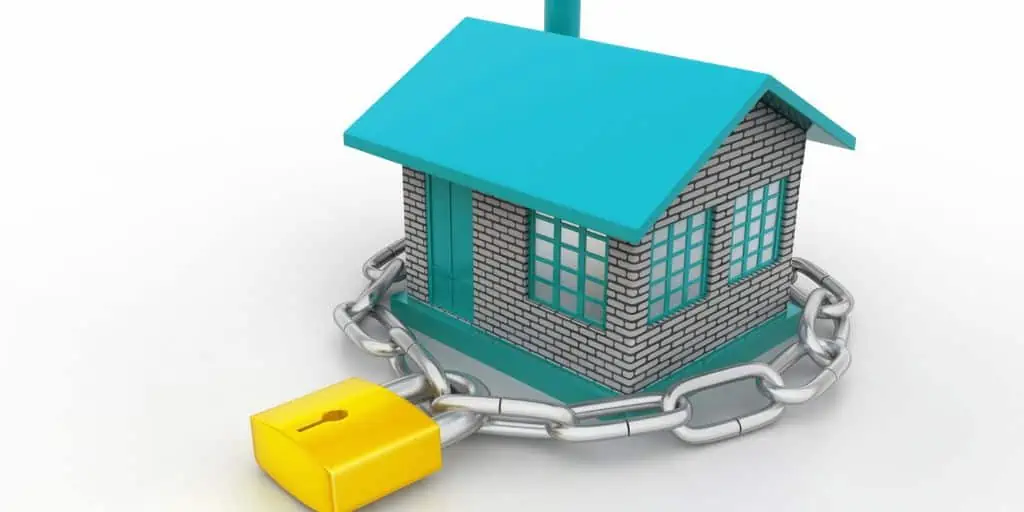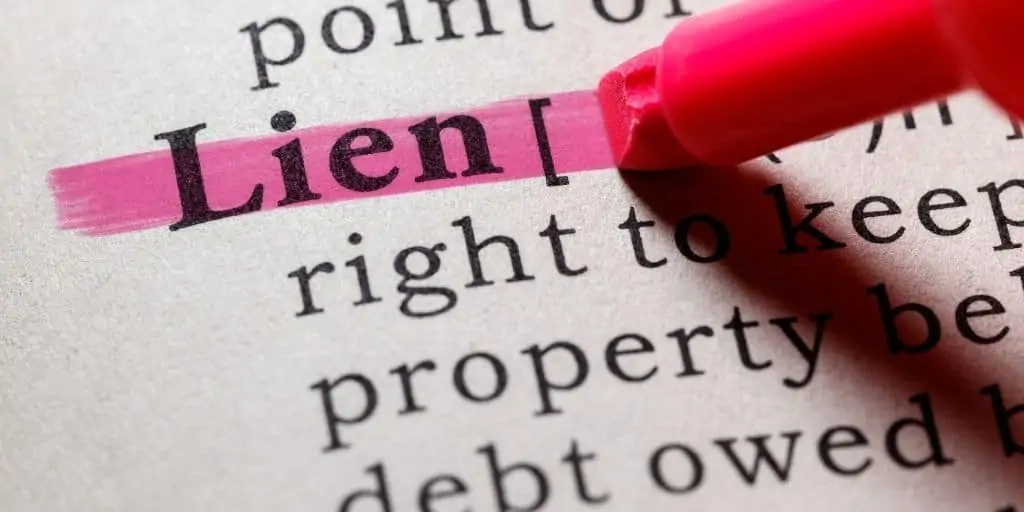
When you go to buy or sell a property, nothing throws a wrench in the works like an unexpected lien.
To avoid any nasty surprises, especially as a seller, you should know what liens are secured against your property. But how do you find out if there are any liens, who owns them, or how much debt is attached?
Fortunately, it’s easier to get answers about liens than most other questions in real estate. In a few steps, you can get a clear picture of the debts secured against any property.
What Is a Lien?
Before going any further, you should understand exactly what a lien is.
A lien is a debt secured against real property. The property owner can’t typically sell or borrow against the property without paying off all liens against it.

You’re likely familiar with some types of liens. Others—not so much.
Types of Voluntary Liens
Everyone understands the concept behind a mortgage loan. You borrow (a lot of) money, and the lender secures that debt against your home. If you default on your mortgage, the lender forecloses on your home to recover their loan.
A lien is the legal mechanism that allows the lender to foreclose if you stop making payments. It attaches the loan to your home, lets the lender force the sale if you default, and prevents you from selling the house without paying them back.
A mortgage lien is voluntary; you chose to borrow that loan and agreed to let it attach to your property as collateral.
Mortgages aren’t the only type of voluntary lien. For example, when you open a home equity line of credit (HELOC), you also put your home up as collateral by letting the lender put a lien against it.

*slaps roof of car* This bad boy can fit so many liens on it (“Slaps Roof of Car,” Know Your Meme. June 28, 2018. Retrieved from https://knowyourmeme.com/memes/slaps-roof-of-car)
The same principle applies to car loans. When you take out a car loan to buy a car, the lender puts a lien against your car. If you default, they repossess your car to recover their money.
Involuntary Liens
Property owners already know about voluntary liens—they voluntarily agreed to them!
Involuntary liens, on the other hand, don’t require your consent. You crossed somebody, and they put a lien against your property to try and collect a bad debt.
Tax liens offer a classic example. If you fail to pay Uncle Sam (or your state or local government) their taxes, they can secure a tax lien against your property to force your compliance.
Likewise, if you fail to pay a contractor for a job they completed, they can file in court to attach a mechanic’s lien against your property. If you didn’t bother opening your mail from the local courthouse, you might find a surprise when you run a lien search on your property.
Creditors who win a judgment against you can also sometimes attach it as a lien against your property to collect on that judgment. For example, if someone sues you and wins or your mortgage lender forecloses but still doesn’t recover their loan, they could win a deficiency judgment against you.
How Liens Work
While there are some differences between different types of liens, in general liens work simply.
First, lienholders can force the sale of your property by foreclosing on it if they like. They get paid from the proceeds of the sale. But foreclosing on a property is expensive, and some lienholders don’t mind waiting for the owner to sell or borrow money.
This raises the second point: liens prevent the property owner from selling or borrowing money against the property without paying off the attached debt. You can’t go to ten different banks and borrow money from all of them against the same property. If you have an existing mortgage, you have to either pay it off when you refinance, or you can take out a second mortgage for a much smaller amount that accounts for the first mortgage.
Liens follow a specific pecking order, called lien position. In most cases, the first lien recorded sits in the first lien position, meaning they get paid off first in a foreclosure sale. If you take out a second mortgage (home equity loan) or a HELOC, it goes in second lien position behind your first mortgage.
There are exceptions to that rule, however. Some liens, like the federal government’s tax liens, usually jump to the front of the line. When this lien is present, it takes the first lien position even if they’re recorded after other liens.
How to Find Liens Against Your Property
You have a few different options at your disposal to find liens against a property.
- Public records: Liens are a matter of public record. Most states and counties post these sorts of public records online for anyone to search without having to physically walk into a courthouse and pore through manila folders. Start here, and in most cases, you can find all liens recorded against your property.
- Private lien search services: Some real estate data providers include liens in their data searches. For example, PropertyShark and Records Finder provide lien data. Just beware that these services cost money, and you can usually find liens for free with a public record search.
- Title agencies: The most expensive but most definitive are title companies. When you buy or sell a property, a title company runs a formal title search to unearth all liens against it. They then issue a title insurance policy to the lender (and sometimes the buyer), guaranteeing clean title.
How to Remove Property Liens
In most cases, you remove a lien by paying off the debt. For example, when you sell a property, the lien disappears because you pay off the mortgage.
It gets trickier if you want to remove the lien without paying off the debt. You can try negotiating with the lienholder; they might accept a lower payoff if you can convince them they won’t get their money back, at least not for a long time. Mortgage lenders sometimes accept short sales, and other lienholders tend to be more flexible, particularly for smaller amounts that aren’t worth foreclosing over.
Once you’ve paid off a balance secured by a lien, it may fall to you to apply for a lien release in court. Clarify that with the lienholder so the lien doesn’t continue sitting against the property even after you’ve paid off the debt.
Alternatively, you can dispute a lien. That involves filing in court and appearing before a judge to plead your case that the lien isn’t legal and should be removed. You can hire an attorney to help with this or present your own evidence.
Final Thoughts
While voluntary liens tend to be both benign and known to you, involuntary liens can catch you off guard at the worst possible time: when you have a property under contract to sell or in the midst of a refinance.
Don’t let liens take you by surprise. Find out if any liens are attached to your property before listing your property for sale or getting a rate lock with a lender. Start with a free public records search, and if you discover a surprise lien, use discretion as you research it. Don’t let the lienholder know that you plan to sell or borrow money against the property, as you tip your hand that you need to pay off the lien. Then the lienholder knows they have you over a barrel.
Instead, don’t reveal anything and express curiosity about how it came to be attached to your property. That leaves you in a far better negotiating position if you do end up trying to negotiate a lower payoff balance.


















